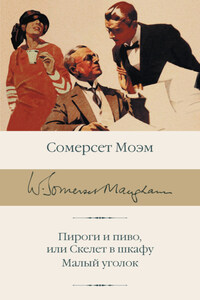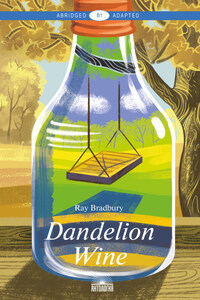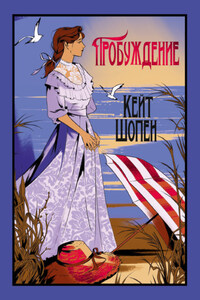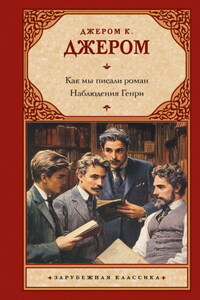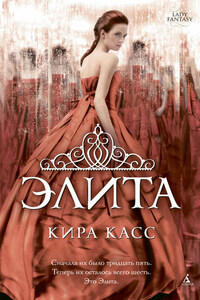BIOGRAPHY AND BIBLIOGRAPHY
L. T. Meade (Mrs. Elizabeth Thomasina Smith), English novelist, was born at Bandon, County Cork, Ireland, 1854, the daughter of Rev. R. T. Meade, Rector of Novohal, County Cork, and married Toulmin Smith in 1879. She wrote her first book, Lettie’s Last Home, at the age of seventeen and since then has been an unusually prolific writer, her stories attaining wide popularity on both sides of the Atlantic.
She worked in the British Museum, living in Bishopsgate Without, making special studies of East London life which she incorporated in her stories. She edited Atlanta for six years. Her pictures of girls, especially in the influence they exert on their elders, are drawn with intuitive fidelity; pathos, love, and humor, as in Daddy’s Girl, flowing easily from her pen. She has traveled extensively, being devoted to motoring and other outdoor sports.
Among more than fifty novels she has written, dealing largely with questions of home life, are: David’s Little Lad; Great St. Benedict’s; A Knight of To-day (1877); Miss Toosey’s Mission; Bel-Marjory (1878); Laddie; Outcast Robbin: or, Your Brother and Mine; A Cry from the Great City; White Lillie and Other Tales; Scamp and I; The Floating Light of Ringfinnan; Dot and Her Treasures; The Children’s Kingdom: the Story of Great Endeavor; The Water Gipsies; A Dweller in Tents; Andrew Harvey’s Wife; Mou-setse: A Negro Hero (1880); Mother Herring’s Chickens (1881); A London Baby: the Story of King Roy (1883); Hermie’s Rose-Buds and Other Stories; How it all Came Round; Two Sisters (1884); Autocrat of the Nursery; Tip Cat; Scarlet Anemones; The Band of Three; A Little Silver Trumpet; Our Little Ann; The Angel of Love (1885); A World of Girls (1886); Beforehand; Daddy’s Boy; The O’Donnells of Inchfawn; The Palace Beautiful; Sweet Nancy (1887); Deb and the Duchess (1888); Nobody’s Neighbors; Pen (1888); A Girl from America (1907).
CHAPTER I
THE FASCINATING MAGGIE
Cicely Cardew and her sister Merry were twins. At the time when this story opens they were between fifteen and sixteen years of age. They were bright, amiable, pretty young girls, who had never wanted for any pleasure or luxury during their lives. Their home was a happy one. Their parents were affectionate and lived solely for them. They were the only children, and were treated – as only children often are – with a considerable amount of attention. They were surrounded by all the appliances of wealth. They had ponies to ride and carriages to drive in, and each had her own luxurious and beautifully furnished bedroom.
It was Mr. Cardew’s wish that his daughters should be educated at home. In consequence they were not sent to any school, but had daily masters and governesses to instruct them in the usual curriculum of knowledge. It might be truly said that for them the sun always shone, and that they were carefully guarded from the east wind. They were naturally bright and amiable. They had their share of good looks, without being quite beautiful. They had not the slightest knowledge of what the world meant, of what sorrow meant, or pain. They were brought up in such a sheltered way that it seemed to them that there were no storms in life. They were not discontented, for no one ever breathed the word in their presence. Their requests were reasonable, for they knew of no very big things to ask for. Even their books were carefully selected for them, and their amusements were of a mild and orderly character.
Such were the girls when this story opens on a bright day towards the end of a certain July. Their home was called Meredith Manor, and Merry was called after an old ancestor on their mother’s side to whom the house had at one time belonged.
Mr. Cardew was a merchant-prince. Mrs. Cardew belonged to an old county family. If there was one thing in the world that Cicely and Merry thought nothing whatever about, it was money. They could understand neither poverty nor the absence of gold.
The little village near Meredith Manor was a model place, for Mr. Cardew, to whom it belonged, devoted himself absolutely to it. The houses were well drained and taken great care of. Prizes were offered for the best gardens; consequently each cottager vied with the other in producing the most lovely flowers and the most tempting fruits. The village consisted entirely of Mr. Cardew’s laborers and the different servants on his estate. There were, therefore, no hardships for the girls to witness at Meredith village. They were fond of popping in and out of the cottages and talking to the young wives and mothers, and playing with the babies; and they particularly enjoyed that great annual day when Mr. Cardew threw open the grounds of Meredith to the entire neighborhood, and when games and fun and all sorts of amusements were the order of the hour.
Besides the people who lived in the village, there was, of course, the rector, who had a pretty, picturesque, old brown house, with a nice garden in one corner of the grounds. He had a good-natured, round-faced, happy wife, and a family of four stalwart sons and daughters. He was known as the Reverend William Tristram; and, as the living was in the gift of the Meredith family, he was a distant connection of Mrs. Cardew, and had been appointed by her husband to the living of Meredith at her request.

